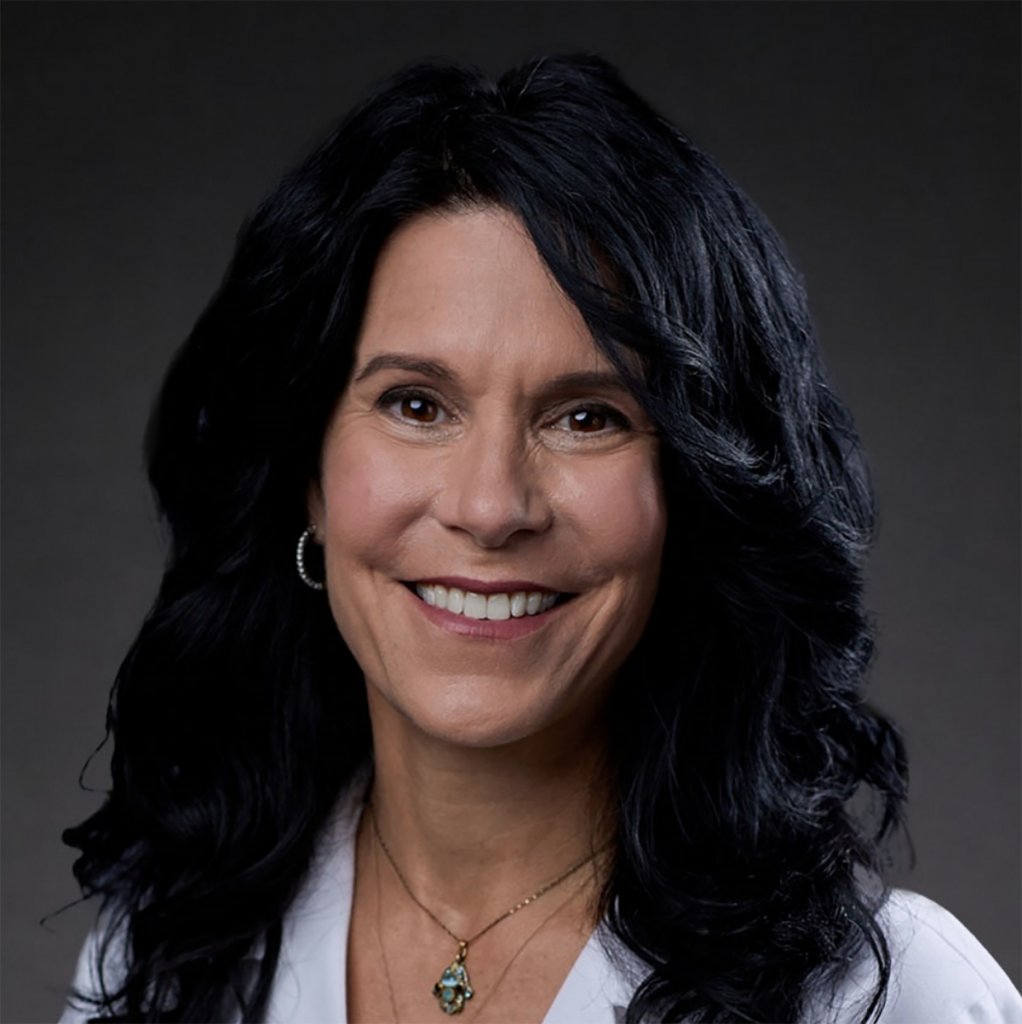Know Your Breast Cancer Risk
- We all know that family history plays a huge role in cancer risk, and that's why an Arizona oncologist recently opted for a double mastectomy in order to lower her risk of developing breast cancer.
- It’s important that people with a family history of breast cancer undergo genetic testing.
- This type of testing is done to determine if a person has a specific mutation that puts them at a higher risk of developing cancer.
Dr. Marnee Spierer has been an oncologist focusing on women's cancer for more than 20 years. Now, she's the chief of staff, specializing in radiation oncology, at the Cancer Treatment Centers of America in Phoenix, Ariz.
Read More
These gene mutations are commonly passed down in families; if a parent carries a BRCA gene mutation, there's a 50-50 chance you could be carrying it as well.
"But what I really wanted to know (was) my actual risk, according to all the models given my family history, that was kind of screaming for something," she told KTAR-FM, a radio station in Glendale, Ariz.
"There (are) so many things that go into the risk of developing cancer, it's not as black and white as being a gene carrier or not," she added.
Further tests led to discovering that Dr. Spierer's risk was very high, despite the fact that she was very healthy and active.
While Dr. Spierer was aware of her risk, she wasn't too concerned for her life. However, when her sister developed breast cancer two years ago, that concern turned to panic.
"An ordinary breast cancer patient then became the third generation of women to be diagnosed with a female cancer (in my family)," Dr. Spierer told the radio station, which is why she decided to figure out what her options of preventing this cancer were before she could receive a diagnosis of her own.
"I knew that for me, the treatment option I wanted to pursue was having the risk reduction surgery, which means have my breasts taken off … I don't like to say preventatively because it doesn't prevent breast cancer, it markedly reduces my risk," Dr. Spierer said.
After discussing the matter with her sister and husband, Dr. Spierer decided to undergo a double mastectomy to reduce her risk of developing breast cancer.
"I am not advocating for women to remove their breasts, I'm advocating for all women to know their risks," she said. "And once you know your risks, having a relationship with your primary medical doctor or some healthcare provider who helps you navigate your treatment options once you know your risks."
What is Genetic Testing?
It’s important that people with a family history of breast cancer, like Dr. Spierer, undergo genetic testing.
This type of testing is done to determine if a person has a specific mutation that puts them at a higher risk of developing cancer.
Genetic testing can be done on samples of blood or saliva, or from a swab of the inside of a cheek, according to the American Cancer Society. The samples are sent to a lab for testing.
Genetic testing for cancer is usually done in a doctor's office (either your primary care doctor or an OB-GYN), but there are a few tests available for people to purchase commercially.
Where Can I Get Genetic Testing?
What Are the Types of Gene Mutations?
Before taking a genetic test to see if you have a higher risk of developing breast cancer, it's important to be educated on the different types of gene mutations that increase your risk of this cancer.
As previously mentioned, the most common breast cancer gene mutation, and the one doctors have known about the longest, is the BRCA gene mutation.
Between 5% and 10% of breast cancer cases are thought to be hereditary. And about 10% of patients who undergo genetic testing will test positive for the BRCA1 or BRCA2 gene, Dr. Julie Rani Nangia, an assistant professor at Baylor College of Medicine, perviously told SurvivorNet.
"The genetic BRCA1 and (BRCA)2 mutations, if a woman has one of these mutations … it puts her at basically the highest quantifiable risk for getting breast cancer," Dr. Port said. "We typically say between the 60 (percent) and 80 percent range. Having a BRCA1 and (BRCA)2 mutation also means that that person is at higher risk of getting breast cancer at an earlier age, and also maybe at risk for other cancers like ovarian cancer, like pancreatic cancer for men, prostate cancer and male breast cancer may be a concern."
Since the discovery of the BRCA mutations in the 1990s, doctors have gone on to identify many other gene mutations that put people at a higher risk of developing breast cancer.
"There's actually eight to 10 genes that also can put someone at a higher risk for breast cancer," Dr. Port said, adding that usually that risk isn't as high as the BRCA mutations. These additional gene mutations include PALB2, ATM, TP53, CHEK2, PTEN, CDH1 and STK11.
Should I Get Genetic Testing to Assess My Risk for Breast Cancer?
"We call them more moderate penetrance genes and those genes, the risk of breast cancer associated with them can be anywhere from say 20 percent to 50 percent. … so still very high, but lower than the BRCA genes that were the ones we originally described."
The PALB2 gene is a "moderate penetrance gene, and the risk of getting breast cancer with PALB2 can be a pretty broad range," Dr. Port said. "And unlike the BRCA genes where we don't really use the family history of who got breast cancer to affect the risk estimates, with PALB2, you really can dial up risk or dial down risk depending on how many relatives and the age of the relatives in the family got breast cancer."
Learn more about SurvivorNet's rigorous medical review process.


